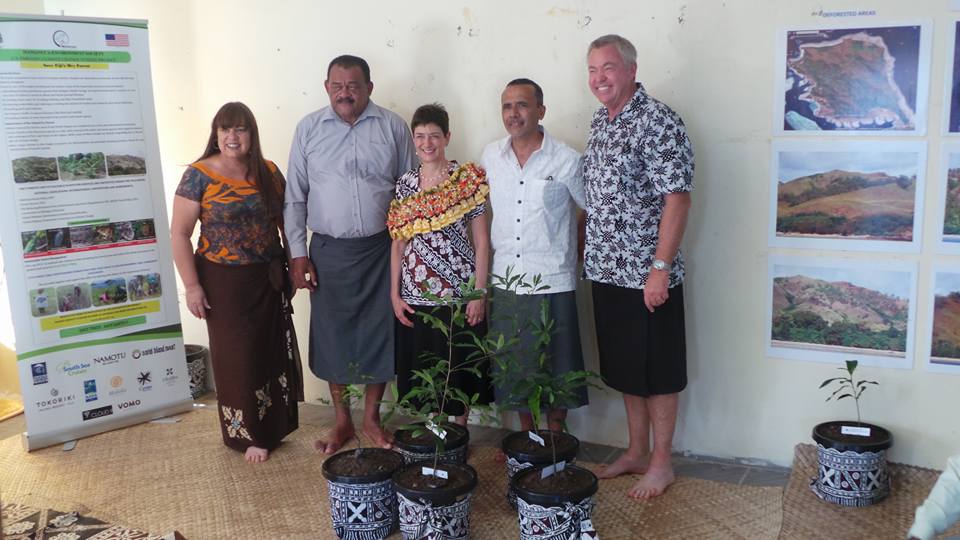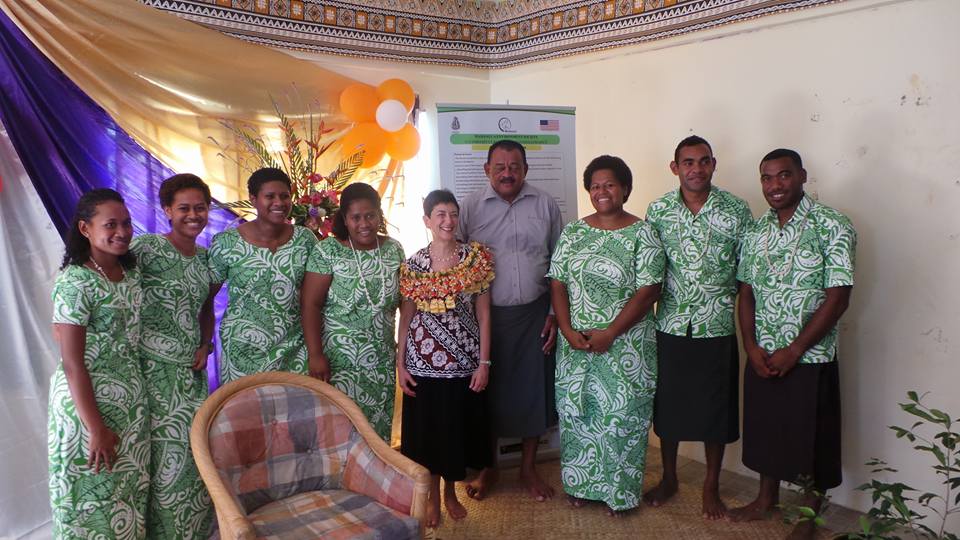Tropical Dry forests support a great diversity of native and endemic species that are significant to the ecosystem. Fiji was known to be one of the largest dry forests in the South Pacific, however, due to anthropogenic activities and invasive species threats, the tropical dry forest is now considered to be one of the endangered ecosystems and habitats of the Pacific. Today, dry forests are found on the major islands of Viti Levu and Vanua Levu and few in the Mamanuca group of Islands.
Conservation efforts are being implemented in Fiji to preserve these dry forests ecosystems and restore the great biodiversity of endemic or native species.
The Mamanuca Environment Society has recently been engaged in reforestation initiatives to restore and re-cover the bared hills with dry forest in the Mamanuca group of islands. Through the Climate change project on “Building Community Resilience to Climate Change through Education and Community-based management” being funded by the US embassy of Fiji, these reforestation initiative has been a great help in resolving conservation efforts of saving the dry forest ecosystem in the Mamanuca Region. This also included the establishment of the Natural Resource Committee team of each community to protect and proper manage the Itaukei Resources.
The US ambassador to Fiji, Judith Cefkin, various stakeholders from the tourism sector, and local government officials visited Solevu village on the 18th of May, 2017. The purpose for the visit was to make a traditional request to Tui Lawa on dry forest seedlings from the islands that still have a wide range of dry forest species, for example, Qalito Island, Monu, & Monuriki. These seedlings are needed to be planted on the impacted areas of the four communities namely Solevu, Yaro, Tavua and Yanuya village to combat and also adapt to Climate change. Most importantly, is to restore the biodiversity of dry forests species and its endemic species, for the benefit of communities’ livelihood and also for the future.
“These have been painstakingly established in its own dry forest nursery over the last three years, growing trees from seed and transplanting saplings. This isn’t just about planting an old tree, it’s about the long term restoration of a damaged forest environment made of specific species for future generations to enjoy”, said Ahura Resorts Group general manager, Steve Anstey.
With this initiative, the government stakeholders and MES will work in partnership in collecting dry forest seedlings and disseminate them on the bared hills of Malolo islands.
MES hopes that with the great help from other stakeholders’ in this great reforestation initiative, Malolo would be able to re-cover their biodiversity, but also through protecting and sustainable management of their own God-given natural resources.



